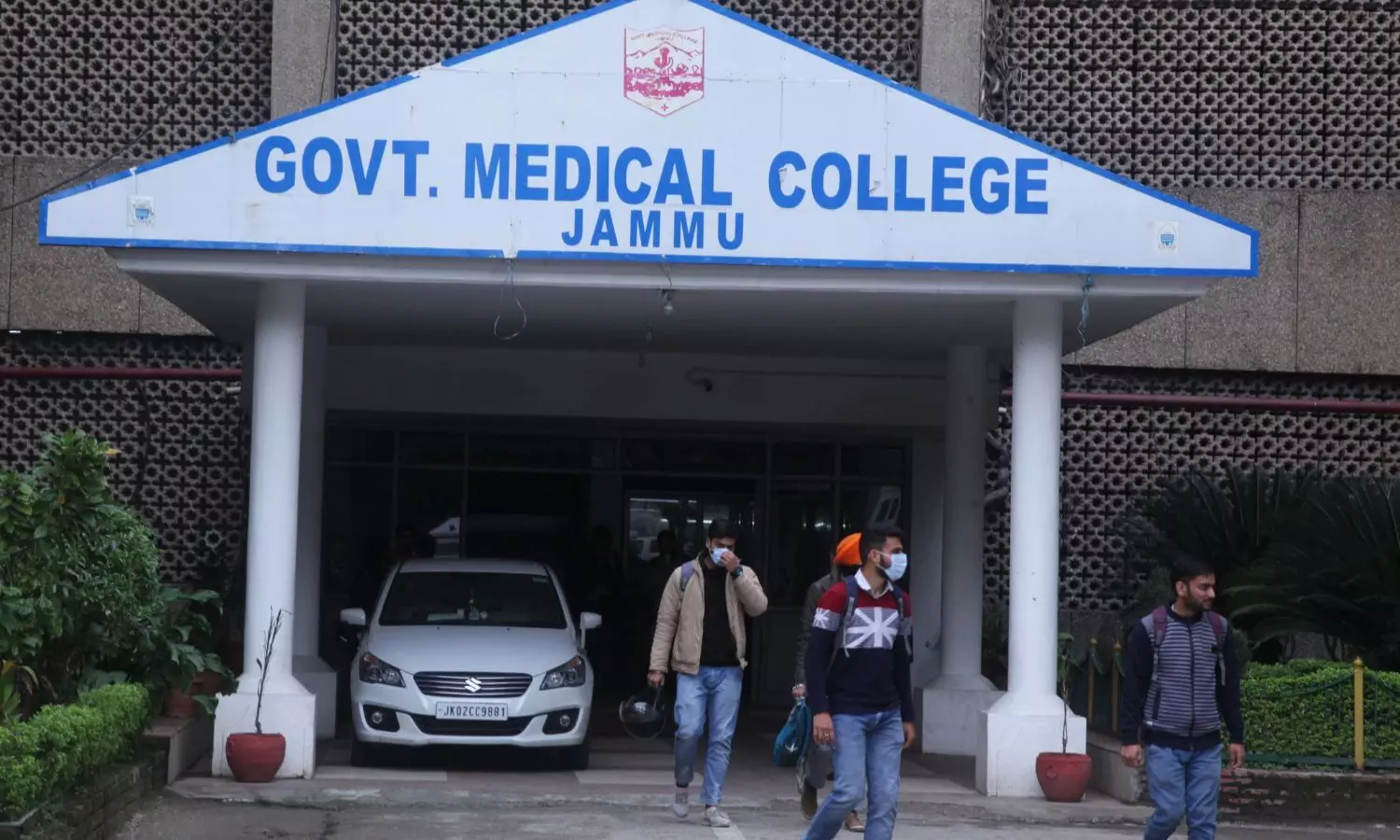
New Delhi: Delhi is no longer service bond-free as from this academic year onwards, the undergraduate and postgraduate medical students in Delhi will have to undergo government service for one year after completion of their MBBS/MD/MS courses. Upset with these developments, doctors in Delhi have expressed their disappointment over the bond policy and urged the authorities to either revoke the bond policy altogether or regularise it.
Issuing a Gazette notification in September last year, the Delhi Government had announced the imposition of a one-year bond. It mentioned that all the UG and PG students, after completing their respective courses, would have to serve the medical institutes under GNCT of Delhi for one year or forfeit the Rs 15 lacs bond (for undergraduate courses) and Rs 20 lakh bond (for postgraduate courses) submitted during their admission.
Meanwhile, releasing the Admission Brochure recently, Guru Gobind Singh Indraprastha University informed that MBBS and postgraduate medical students will have to undergo a one-year service bond after the completion of their course, including the internship period.
Also Read: Delhi Imposes 1-Year Bond, Doctors See Red
Commenting on the issue, a medical education activist and the Chief Patron of the Federation of All India Medical Association (FAIMA), Dr. Rohan Krishnan, termed the bond policy in Delhi as “laughable” and “hilarious”.
He explained that being the national capital, a lot of doctors want to work in Delhi and therefore, forcing doctors by service bond to serve in Delhi does not make any sense.
“It is not a good initiative. Usually, the bond policy must be abolished, and the National Medical Commission has also given its directive that, pan-India, there should be no bond policy. However, still for political mileage and lack of knowledge among the bureaucrats and politicians, this bond policy is flowing across the nation. However, this happening in the national capital is a very laughable and hilarious situation because it is not required in Delhi. People are dying for jobs in Delhi and not getting them. So, forcing someone to do the job in Delhi is something which has no meaning because now there will be much fewer seats available for the other states to work in Delhi,” Dr. Krishnan said.
“This will naturally lead to a lot of disappointment among the students, especially many students from other states come here for NEET PG examination and they do their Junior Residency to earn some money and simultaneously they also prepare for the examination. So, this is a very big blow to them and their thoughts and actions. I think that it was unfortunate that this bond policy was implemented in Delhi without even asking the stakeholders or holding meetings. I hope that the Delhi Government takes the bond policy back,” he added.
The United Doctors Front (UDF) has also strongly condemned the Delhi Government’s recent decision to impose a 1-year mandatory service bond on MBBS and postgraduate medical students.
Speaking to Medical Dialogues, the National President of UDF, Dr. Lakshya Mittal termed it as the “worst policy decision taken in recent times.” He said, “At a time when even the National Human Rights Commission (NHRC) and the National Medical Commission (NMC) have clearly advocated for the abolition of bond policies, it is deeply shocking that Delhi has moved backwards by imposing a new bond rule. The NMC itself has reiterated to all states that there should be no mandatory bonds for medical students. Ignoring such national recommendations and burdening young doctors reflects a complete disregard for their rights and dignity.”
“Today, doctors in India are already working under immense pressure, and imposing bonds without addressing systemic issues only reduces them to the status of bonded laborers. This regressive move not only disrespects the sacrifices of medical professionals but also crushes the morale of future healthcare providers. Moreover, day by day, the quality of medical education in India is deteriorating. Medical colleges are being opened rapidly, seats are being increased exponentially without adequate infrastructure, without sufficient faculty, and without proper training environments. Instead of focusing on improving standards, the authorities are resorting to forcing young doctors into unfair service commitments. This is not the way to strengthen India’s healthcare system — this is the way to destroy it,” Dr. Mittal added.
UDF has demanded an immediate rollback of the bond policy in Delhi and urged the authorities to respect NMC’s recommendations advocating no bonds. Further, the association has demanded that the focus should be on improving medical education infrastructure and quality rather than punishing young doctors.
Meanwhile, the Secretary of the Federation of Resident Doctors’ Association (FORDA), Dr. Meet Ghonia, said that FORDA has always favoured the complete abolishment of the bond policy across the nation.
He told Medical Dialogues, “Delhi government has introduced 1 year mandatory bond or Rs 20-lakh penalty for PG resident doctors completing their PG in medical colleges of Delhi Government. This isn’t applicable to medical colleges of the Central Government. While all other states across India have a bond system, Delhi was left behind.”
“We are always in favour of complete bond abolishment or “One Nation, One Bond Policy” across India. FORDA also requested for One Nation, One Bond Policy in meeting organised by DGHS on 22nd April. NMC should do helpful to bring this policy for UG and PG medical courses,” Dr. Ghonia further added.
When asked about his opinion on the matter, the National Secretary of IMA JDN Standing Committee, Dr. Indranil Deshmukh said that the Indian Medical Association- Junior Doctors’ Network (IMA-JDN) has strongly opposed the newly implemented one-year bond policy for medical graduates and postgraduates in Delhi and reiterated its stand against such compulsory bond policies across India.
“Young doctors dedicate years of hard work, financial investment, and personal sacrifice to their education. Forcing them into mandatory service without fair compensation, adequate infrastructure, or career flexibility is unjust and amounts to exploitation. Policies like these, implemented without consultation, violate career freedom, impose harsh penalties, and create disparities among states,” Dr. Deshmukh said.
“If governments truly wish to strengthen public healthcare, they must inspire voluntary service by providing better incentives, dignified working conditions, and clear career pathways — not through coercive bonds. IMA JDN demands immediate withdrawal of the bond policy in Delhi and urges all states to abolish such unfair practices. We remain committed to safeguarding the rights, dignity, and future of young doctors nationwide,” he further added.
Also Read: Breaking News: NMC Asks States to do Away with Seat leaving Bond
Delhi Government announced the compulsory service bond at a time when the National Medical Commission (NMC) stated its opinion against the imposition of seat-leaving and compulsory rural service bonds.
In its report, the ‘National Task Force on Mental Health and Well-being of Medical Students’, which was set up by NMC, opined that both the seat-leaving bonds and compulsory rural service bonds should be abolished.
Medical Dialogues had earlier reported that as an alternative to compulsory rural service bond, the Task Force had recommended transitioning it from compulsory service to a system of positive incentives such as paying higher fees for service in rural areas, granting grace marks, providing reservations in PG or super-specialization seats for completing rural service etc.
Even though NMC has suggested abolishing the bond policy, a senior health ministry official informed Education Times, on the condition of anonymity, that service-bond is a policy decision implemented by the State/UT Governments. The official said, “Health services such as bond policy, working hours, and salary come under the purview of the state administration. The NMC advisory has already clearly recommended against the introduction of bond policies for doctors. But, the final decision is made by the state governments.”
Echoing similar opinion, the Chairman of NMC, Dr. BN Gangadhar said, “The NMC can only recommend and not enforce the bond policy on states. The state governments impose bonds for various reasons. NMC intends to increase the number of doctors in the country so that enough qualified doctors are available in the healthcare sector, including the peripheral areas of the states, and states could remove the mandatory bond policy.”
The service-bond policy is operational in several states, including Maharashtra, Rajasthan, Gujarat, Madhya Pradesh, Uttar Pradesh, Haryana, Tamil Nadu, Karnataka, Andhra Pradesh, Telangana, Kerala, Goa, West Bengal, Assam, Andaman and Nicobar Islands, Arunachal Pradesh, and more. However, the amount of penalty and tenure of bond service vary across these States.
While the bond-service tenure is five years in States such as Haryana, Himachal Pradesh, and Assam, it is three years in West Bengal, Goa, Jharkhand, Gujarat, two years in Uttar Pradesh, Tamil Nadu, and Rajasthan etc.
Highlighting that the bond service plays a negative role in respect to the mental health of students, the senior health ministry official further told ET, “States need to realise that such policies are driving doctors out of their state. For instance, Karnataka reduced its bond policy from two years to one year. Chhattisgarh faces difficulty in running its health services without the bond policy. Similarly, medical colleges under Armed Forces Medical Services (AFMS) have a mandatory bond policy for doctors, as they offer the course at a subsidised rate, and it becomes a loss for the Forces.”
“Any form of service bond policy imposed on doctors at any stage is an infringement on their freedom to choose where to work after completing their medical education. It becomes frustrating for doctors as the bond increases the total tenure of the course and holds them back from pursuing their potential careers,” said Dr Divyansh Singh Rajput, currently serving a two-year bond at King George’s Medical University & Hospital (KGMU), Lucknow.
“The NMC can not interfere with the state policies, but it should at least recommend certain uniform regulations. The service bond policy differs from state to state and imposes financial penalties ranging from Rs 10 lakh to Rs 50 lakh,” he added.
Also Read: 1-year bond service for MBBS, PG medical students in Delhi medical colleges





